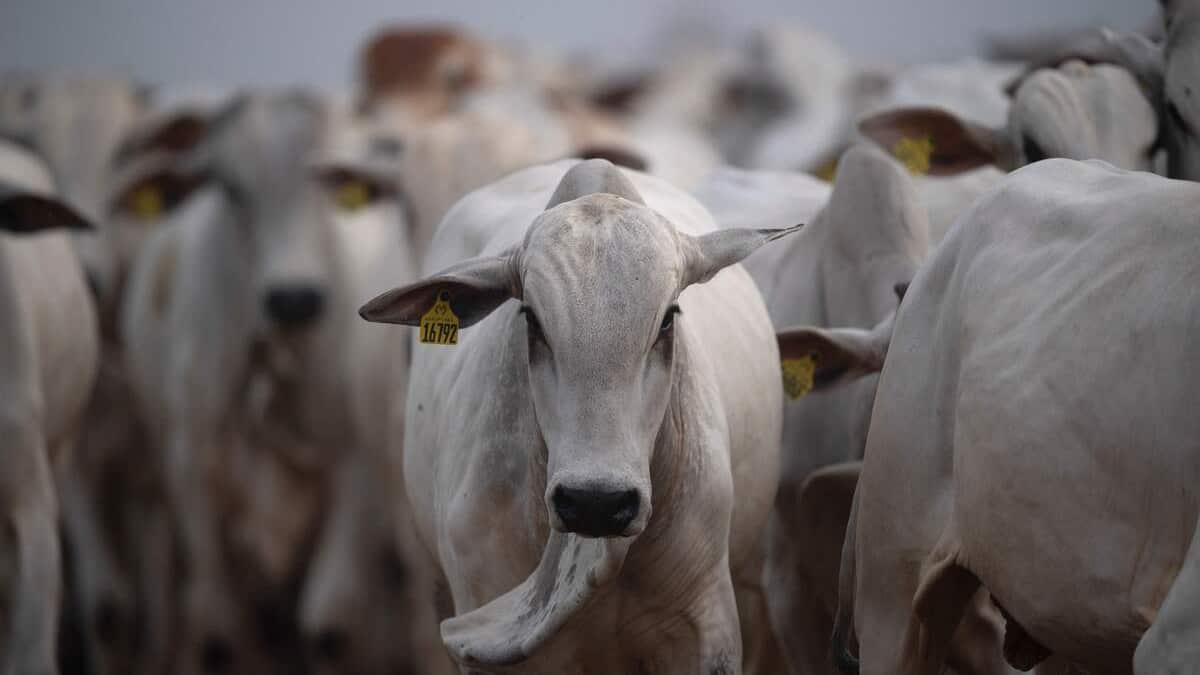Greenhouse gas emissions from European meat and dairy giants continue to increase despite the climate crisis, as a non-governmental organization report on Monday denounced what it called a “greenwash” of particularly polluted sectors.
• Read also: Greenhouse gas emissions increase in Quebec in 2019
• Read also: Raise your goals, you can’t do it on the corner of the table
In this report calling on governments to “regulate agribusiness,” the Institute for Agriculture and Trade Policy (IATP) reviews 35 of the largest companies in the sector headquartered in the European Union, the United Kingdom and Switzerland, and examines their potential climate plans and emissions covering the entire supply chain, Particularly livestock, a major source of greenhouse gas emissions.
According to their analysis, these companies were responsible for 7% of EU emissions in 2018, and the emissions of the 20 largest companies exceed those of the Netherlands.
The report specifically focuses on ten large companies, with more or less precise climate targets.
As a result, the absolute emissions of seven of them increased over a two-year period. For example, on the meat processing side, between 2016 and 2018, +45% for Irish ABP and +30% for German Tönnies; And on the milk side, between 2015 and 2017, +15% and +30% respectively for French Danone and Lactalis.
“The carbon footprint of European milk and meat giants is competing with those of fossil fuel giants, but they continue to operate with impunity,” Shefali Sharma, European Director of the IATP deplored in a press release.
And “a handful of companies with climate plans rely on accounting tricks, greenwashing (or facade greening, editor’s note) and the questionable effects of offsets to divert attention from fundamental changes needed to reduce emissions, all by shifting a significant portion of the costs and risks that they The farmers who provide it are exposed to it.
The report particularly denounces the use by these companies of the concept of carbon intensity, that is, emissions per liter of milk or kilograms of meat, which can go down without reducing absolute emissions, because at the same time production and the number of head of livestock increase.
Of the 20 companies analyzed, only four (Arla, Danone, FrieslandCampina and Nestlé) reported their total supply chain emissions and only three companies (Nestlé, FrieslandCampina and ABP) announced their intention to reduce their absolute emissions by including supply chain Her own. , according to the text.
But “there is no general evidence to suggest that any of these companies plan to fundamentally change their model for large-scale livestock production and processing.”
The IATP also condemns the attempt by these large companies to shift responsibility to both European breeders and consumers.
The report notes that even if the latter consumes less meat and milk, this will have “limited effects” in reducing emissions from European livestock farming due to the large share of exports.

“Extreme twitteraholic. Passionate travel nerd. Hardcore zombie trailblazer. Web fanatic. Evil bacon geek.”


